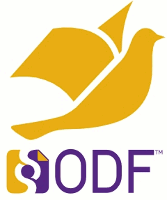Besides being International Talk Like a Pirate Day, 19th September 2015 is also a date for the diaries of people advocating free and open source software; it’s Software Freedom Day 2015.
 The idea of Software Freedom Day (SFD) is for everyone without a vested interest in proprietary software to unite and educate the world about the ideals of Software Freedom and the practical benefits of Free Software. August 28th 2004 was the first ever Software Freedom Day and was initiated group of FOSS believers – Matt Oquist, Henrik Omma and Phil Harper – with the idea of distributing The OpenCD – a collection of free and open source software for Windows – to everyone.
The idea of Software Freedom Day (SFD) is for everyone without a vested interest in proprietary software to unite and educate the world about the ideals of Software Freedom and the practical benefits of Free Software. August 28th 2004 was the first ever Software Freedom Day and was initiated group of FOSS believers – Matt Oquist, Henrik Omma and Phil Harper – with the idea of distributing The OpenCD – a collection of free and open source software for Windows – to everyone.
SFD has since extended around the world with events being organised on every continent.
Why is software freedom important?
The United Nations’ Universal Declaration of Human Rights is a set of basic human rights that most people would agree would be a bare minimum. Not often are our basic rights thought of in the context of technology, but as more and more our lives are dependent on technology, it is a rapidly growing concern. Technologies that matter to our freedom are used in our voting systems, our leisure, our work, education, art and our communication. What does this mean to you? It means that the basic human freedoms you take for granted are only as free as the technologies you use.
Transparent and sustainable technologies are vital to ensuring we can protect our freedoms.
Think about any software you use everyday that is proprietary and the consider that you can’t be sure what it is actually doing. Does your email system send copies of your mail to a third party? Is your web browser, logging and automatically sending your browsing history to someone?
As more and more of the world’s population starts using technology, getting online and developing the next major life-changing event of the future (such as the internet was for many of us), ensuring open, transparent and sustainable approaches are considered best practice is important; i.e. important to a future where technology empowers everyone equally, where knowledge is forever and where our basic human freedoms are strengthened, not hampered, by technology.
Reposted, with some edits, from Bristol Wireless.


 The Dutch government wants to accelerate the adoption of
The Dutch government wants to accelerate the adoption of  Matthias Kirschner and Alessandro Rubini are the new President and Vice-President respectively of the
Matthias Kirschner and Alessandro Rubini are the new President and Vice-President respectively of the  The idea of Software Freedom Day (SFD) is for everyone without a vested interest in proprietary software to unite and educate the world about the ideals of Software Freedom and the practical benefits of Free Software. August 28th 2004 was the first ever Software Freedom Day and was initiated group of FOSS believers – Matt Oquist, Henrik Omma and Phil Harper – with the idea of distributing
The idea of Software Freedom Day (SFD) is for everyone without a vested interest in proprietary software to unite and educate the world about the ideals of Software Freedom and the practical benefits of Free Software. August 28th 2004 was the first ever Software Freedom Day and was initiated group of FOSS believers – Matt Oquist, Henrik Omma and Phil Harper – with the idea of distributing 